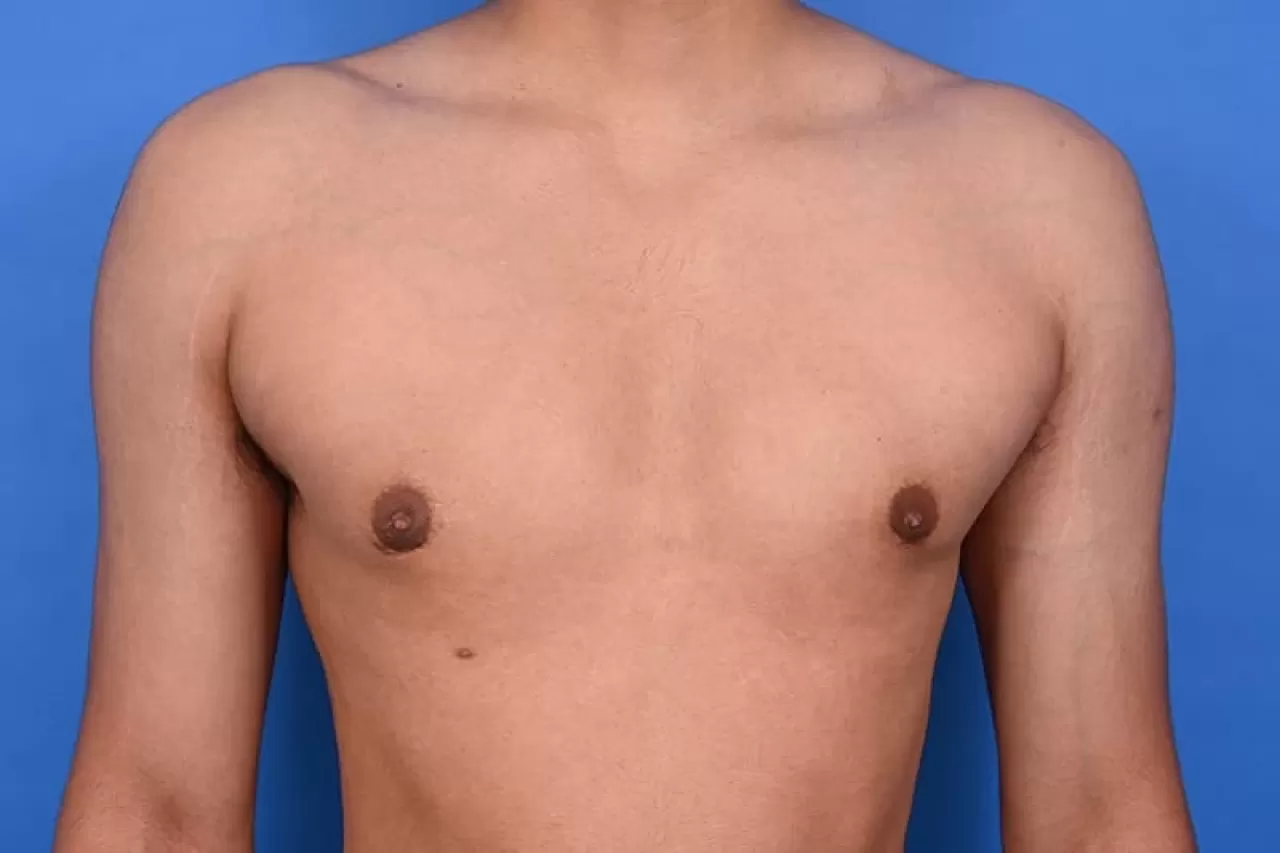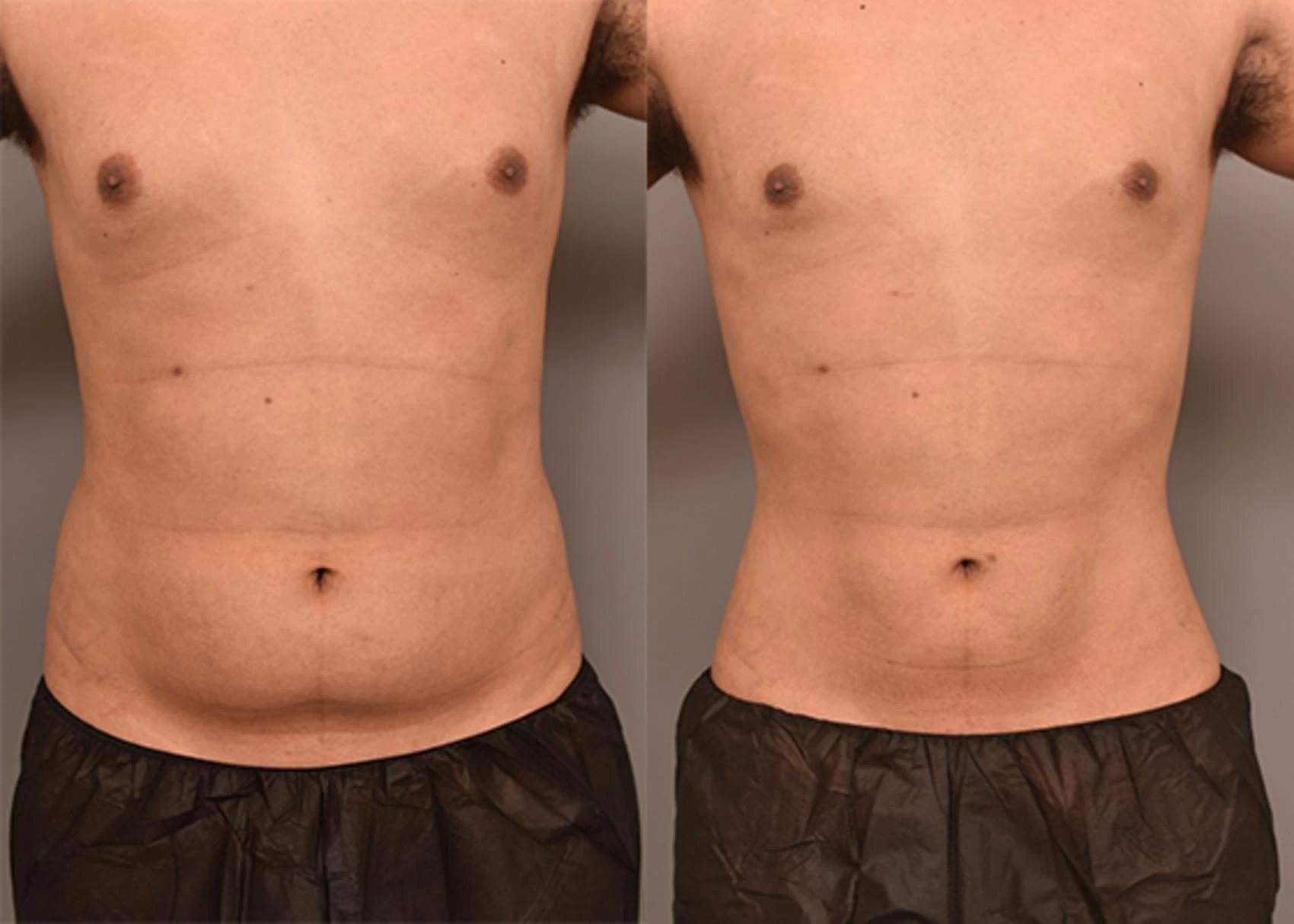Gynecomastia is a condition characterized by the enlargement of breast tissue in males. This condition can affect one or both breasts and is often a source of significant discomfort or self-consciousness for those affected. Understanding the causes, treatment options, and management strategies is crucial for those dealing with gynecomastia.
What is Gynecomastia?
Gynecomastia is a condition where the breast tissue in males becomes enlarged. It can occur due to hormonal imbalances, particularly an increase in estrogen or a decrease in testosterone. The condition can affect adolescents, adults, and elderly men, and may be unilateral (affecting one breast) or bilateral (affecting both breasts).
Causes of Gynecomastia: The causes of gynecomastia include:
- Hormonal Imbalances: Changes in hormone levels, such as elevated estrogen or low testosterone.
- Medications: Certain drugs, including some used for heart conditions and psychiatric disorders.
- Health Conditions: Conditions like liver or kidney disease, and tumors.
- Substance Use: Alcohol, drugs, and anabolic steroids can contribute to the condition.
Treatment Options: Treatment for gynecomastia depends on its cause and severity. Options include:
- Medications: In some cases, medications to balance hormones or reduce breast tissue may be prescribed.
- Surgery: For persistent or severe cases, surgical options like liposuction or mastectomy (removal of breast tissue) might be recommended.
- Lifestyle Changes: Addressing underlying health issues, stopping substance use, and maintaining a healthy weight can help manage symptoms.
Natural Remedies and Prevention: While no natural remedy has been proven to completely cure gynecomastia, maintaining a healthy lifestyle, avoiding substances that can contribute to the condition, and regular exercise may help manage symptoms and prevent progression.
Costs and Considerations: Gynecomastia treatment costs vary based on the approach. Surgical treatments can range from $4,000 to $8,000. It’s essential to consult with a healthcare provider to explore the best treatment option for your specific situation.
For more information or to schedule a consultation, contact Konuk Clinic:
- Phone: +90 534 261 65 05
- Email: info@konukclinic.com
- Address: Alemdar, Divanyolu Cd, Ticarethane Sk. No:10/2, 34122 Fatih/İstanbul
Popular Questions:
What is the cause of gynecomastia?
- Gynecomastia is primarily caused by hormonal imbalances, including increased estrogen levels or decreased testosterone levels. It can also be influenced by medications, health conditions, or substance use.
Will gynecomastia go away?
- In some cases, gynecomastia may resolve on its own, especially in adolescents. However, if it persists or causes significant discomfort, medical or surgical treatment may be necessary.
Is gynecomastia harmful or not?
- Gynecomastia is generally not harmful but can cause psychological distress and discomfort. Addressing the underlying cause and seeking treatment can help manage the condition effectively.
How do men fix gynecomastia?
- Treatment options include medications to balance hormones, lifestyle changes, and in some cases, surgical procedures to remove excess breast tissue.
Can high testosterone fix gynecomastia?
- Increasing testosterone levels alone may not fix gynecomastia, as the condition often involves an imbalance between estrogen and testosterone. A comprehensive approach, including addressing underlying causes, may be needed.
Can I get rid of gyno naturally?
- While natural remedies may help manage symptoms, they are unlikely to completely resolve gynecomastia. Maintaining a healthy lifestyle and addressing any contributing factors can be beneficial.
Does gyno mean low testosterone?
- Not necessarily. Gynecomastia can be caused by a range of factors, including hormonal imbalances where estrogen levels are elevated relative to testosterone.
How can I stop gynecomastia from growing?
- Managing gynecomastia involves addressing the underlying cause, avoiding substances that may contribute to the condition, and considering medical or surgical treatment if necessary.
Does gym cause gyno?
- Exercise itself does not cause gynecomastia. However, the use of anabolic steroids or other performance-enhancing substances can contribute to the condition.
Does girls hate gynecomastia?
- Personal preferences vary, but many people, regardless of gender, may find gynecomastia undesirable. Seeking treatment can help improve self-confidence and address any concerns.
Can I ignore gynecomastia?
- While gynecomastia is not usually a serious health issue, ignoring it may lead to ongoing discomfort and psychological distress. Seeking medical advice can help address and manage the condition.
How do I check if I have gyno?
- To check for gynecomastia, look for enlarged breast tissue in one or both breasts. Consulting with a healthcare provider for a proper diagnosis and evaluation is recommended.
















